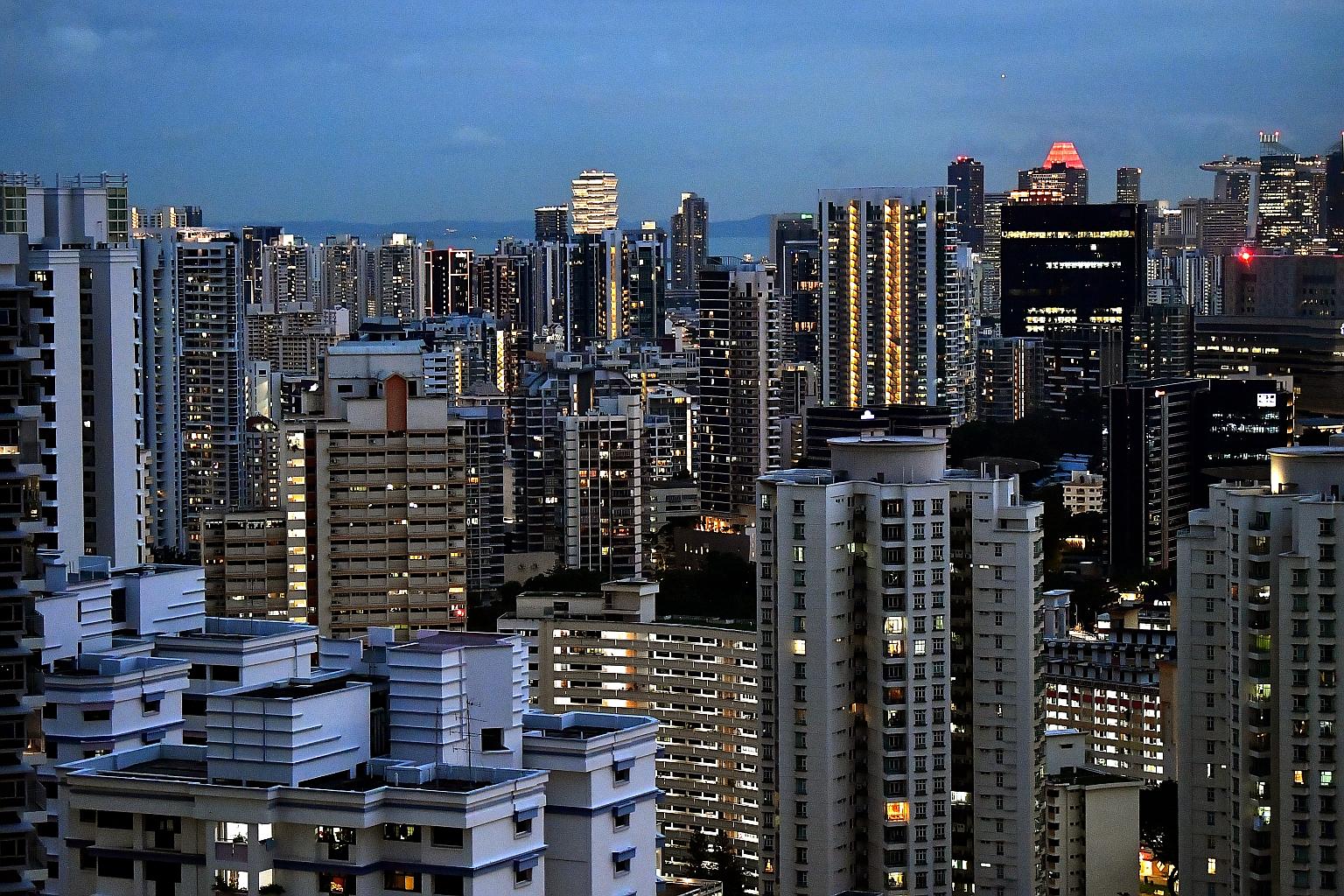Singapore private home prices inch up 2.7% for 2019
But number of units sold fell 13.5% to 19,150 last year: URA
Sign up now: Get ST's newsletters delivered to your inbox

Oversupply in Singapore's private residential market is easing but could take until next year to reach manageable levels, according to Mr Ong Teck Hui, JLL's senior director of research & consultancy. However, a new threat looms in the form of the Wuhan virus, which he said could affect the market if the virus lingers and dampens visits to showflats.
ST FILE PHOTO
The private housing market went in two directions last year - while prices inched north, the number of sales took a sharp turn south.
The price rise was modest - up 2.7 per cent for the whole of last year - although it did beat flash estimates of a 2.5 per cent gain.
But the decline in the number of private residential units sold was more striking - down 13.5 per cent to 19,150, Urban Redevelopment Authority (URA) data said yesterday.
This came on the back of a 31 per cent plunge in resale transactions as buyers were drawn by the increased availability of new projects, noted Ms Tricia Song, head of research for Singapore at Colliers International.
Resale transactions, which accounted for 48 per cent of all sales in the fourth quarter last year, came in at 2,342 compared with 2,378 in the third quarter.
Overall, there were 8,949 resale transactions last year compared with 13,009 in 2018.
New home sales by developers rose 12.7 per cent to 9,912 units last year, excluding executive condominiums (ECs).
"The new-sales segment is expected to continue to dominate the market owing to the line-up of projects scheduled for launch in 2020," said Mr Desmond Sim, CBRE's head of research, South-east Asia.
Developers sold 2,443 units (excluding ECs) in the fourth quarter compared with 3,281 in the previous three months.
Prices overall were 2.7 per cent higher last year compared with 2018, but that was a marked drop from the 7.9 per cent rise from 2017 to 2018.
The difference is largely down to the effects of the cooling measures that were imposed in July 2018.
Ms Christine Li, Cushman & Wakefield's head of research for Singapore and South-east Asia, called last year a "relatively good year" for the private residential market as the increase in new sales transactions and overall price growth helped mitigate slower take-up in overall volumes.
She attributed the drop in resale volumes to collective sales fever dying out after the cooling measures.
Ms Li said: "In 2020, we expect the market trends to be similar to 2019, given that market fundamentals remain unchanged: Interest rates are expected to remain low, while the economy is expected to improve slightly in 2020.

"Though developers are not that threatened by ABSD (additional buyer's stamp duty) currently, there are some concerns over sales momentum in 2020 given the dwindling stock of smaller units while the larger units remain unsold."
Prices of landed homes rose 5.7 per cent last year while those of non-landed units went up 1.9 per cent.
Developers launched 2,226 uncompleted private residential homes (excluding ECs) for sale in the fourth quarter, compared with 3,628 units in the third.
There were 11,345 units launched last year, up from 8,769 in 2018.
Developers did not launch any EC units for sale in the fourth quarter, but 59 were sold in that period.
There was a total supply of 49,173 uncompleted private residential units, excluding ECs, in the pipeline with planning approval as at Dec 31 compared with 50,964 as at Sept 30.
Around 30,000 or these remained unsold as at Dec 31.
Mr Ong Teck Hui, JLL's senior director of research & consultancy, noted that the oversupply in the private home market is easing but added that "the supply of units in the sales pipeline is still significant, which could take until 2021" to reach manageable levels.
A new threat looms in the form of the Wuhan virus, which Mr Ong said could affect the private residential market if the virus lingers and dampens visits to show flats.
"Buyers and sellers would be less inclined to interact and market activity could slow. This would have a negative impact on sales volume and prices," he noted.


